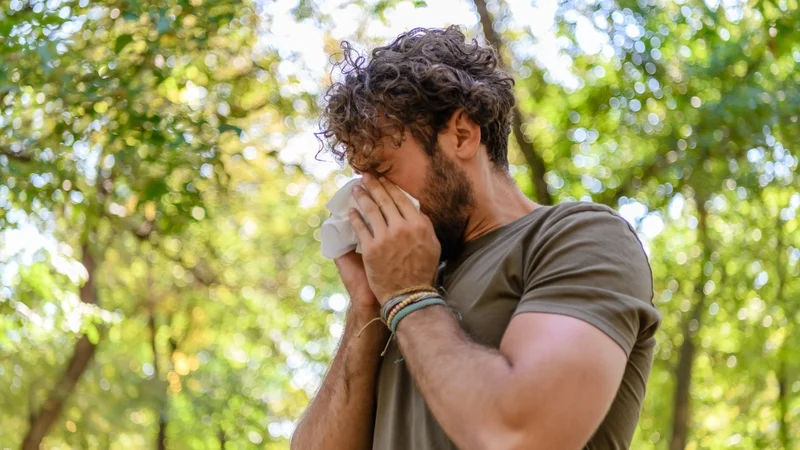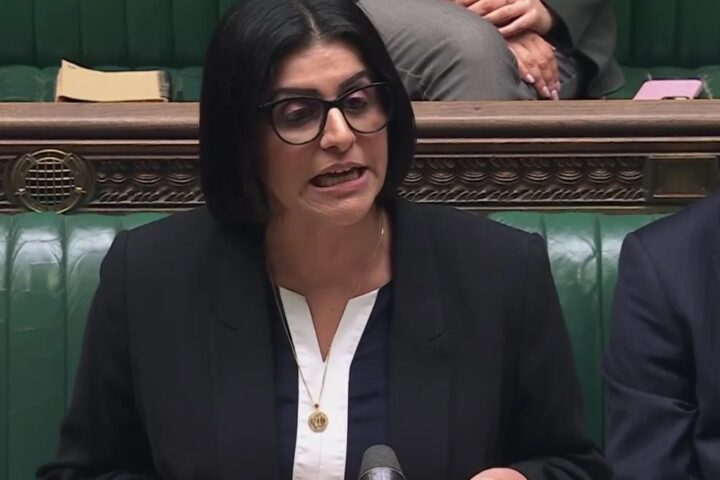A Clare-based GP has said “there’s been a big change” in people attending the medical practice for hay fever.
Her remarks come after the Copernicus Atmosphere Monitoring Service reported that pollen levels were so extreme in parts of Europe during Spring, that even people not known to suffer allergies felt the effects of hay fever.
Dr Yvonne Williams said patients, who have never had hay fever before, are attending the practice, saying “the normal medicines, the antihistamines, they get over the counter just aren’t working for them this year”.
Speaking on RTÉ’s Today with Claire Byrne, she added that others are wondering “why their head cold hasn’t gotten better” or why it is “going on much longer than a cold and wondering what’s wrong with them, they’ve never had hay fever before”.
She said those affected by allergies can try avoidance measures such as washing pollen from hair at night and keeping doors and windows closed.
She said hay fever sufferers can also try “simple things” like placing Vaseline around the nose or wearing wrap around sunglasses to keep pollen out the eyes.
Medicines are also available, Dr Williams said, including antihistamines, eye drops and nose sprays.
But she warned some antihistamines can “make people sleepy and you have to be careful if you’re driving with those”.
“Your pharmacy will be a great point of contact and then your GP, if you can’t control it with over-the-counter medication because it can affect your sleep, it can make you tired – that has implications,” she said.
“For the asthmatics, that drip of hay fever and the constant sniffle – can trigger off quite bad flares of asthma and really make your asthma go out of control,” she added.
Scientists say that climate change is altering the production and distribution of pollen and spores, as more and more people have reported developing allergy symptoms.
As winter frost thaws earlier and spring weather gets warmer, plants and trees flower earlier, extending the pollen season and misery for allergy sufferers.
Around a quarter of adults in Europe suffer from airborne allergies, including severe asthma, while the proportion among children is 30 to 40%.
That figure is expected to rise to half of Europeans by 2050, according to the World Health Organization.
Assistant Professor at Dublin City University in the School of Chemical Sciences said “basically anyone” can have the symptoms of hay fever.
“If the pollen levels get high enough, people who never have suffer from them will actually start exhibiting symptoms,” Dr David O’Connor said.
Dr O’Connor said pollen season starts in January and runs until September, but he said “we’ve noticed in our work, it’s like getting longer – the start date has been pushed into December and the end date is actually heading towards October”.
“Also, we see increasing concentrations of the pollen as well and actually the amount of allergen in the pollen is also increasing,” he added.
Speaking on the same programme, he noted a pollen forecast is available for people to access on the Met Éireann website, allowing people to take mitigating measures ahead of high pollen levels.
“Just kind of like your weather forecast, if you know it’s gonna be raining tomorrow, you might bring a coat or an umbrella with you, if you know it’s gonna be a high pollen concentration day tomorrow, you can take your antihistamine and wear your mask,” he said.
Dr O’Connor warned hay fever can be dangerous for those with asthma, explaining for such individuals “if they breathe in high concentrations of pollen it can actually give them an asthma attack.
“That’s where it goes from a well-being problem to actually a life or death problem,” he added.














